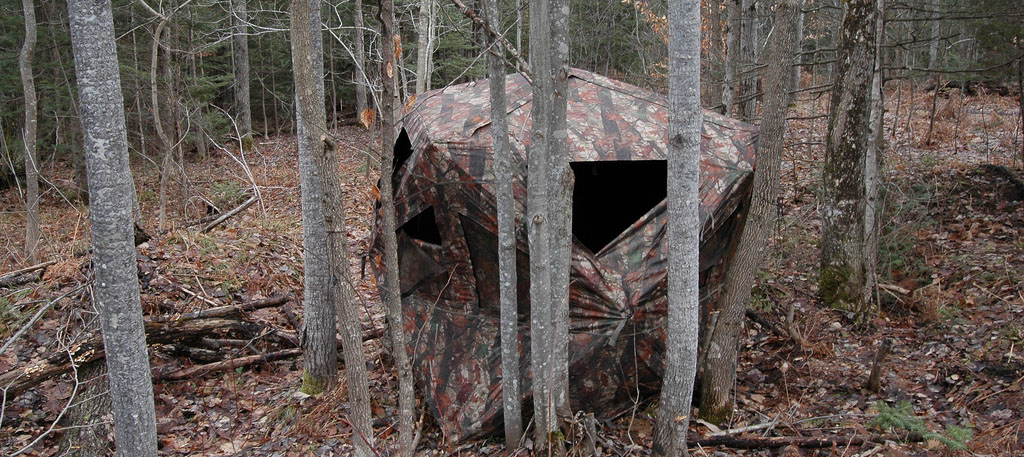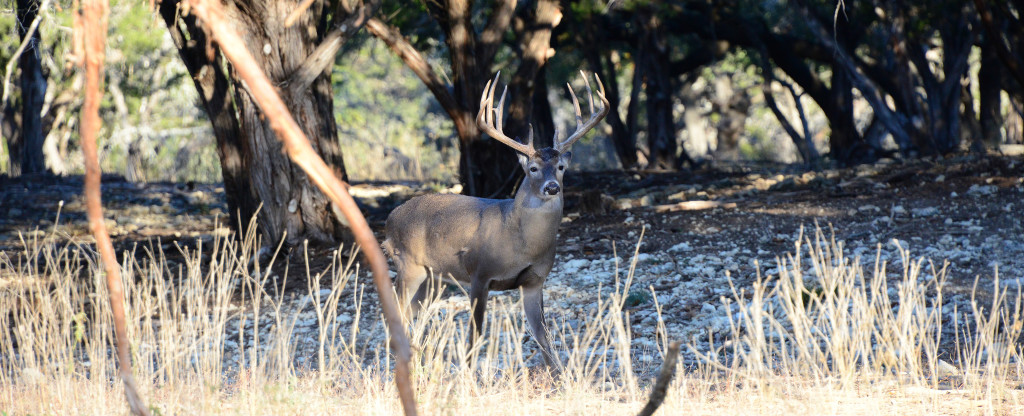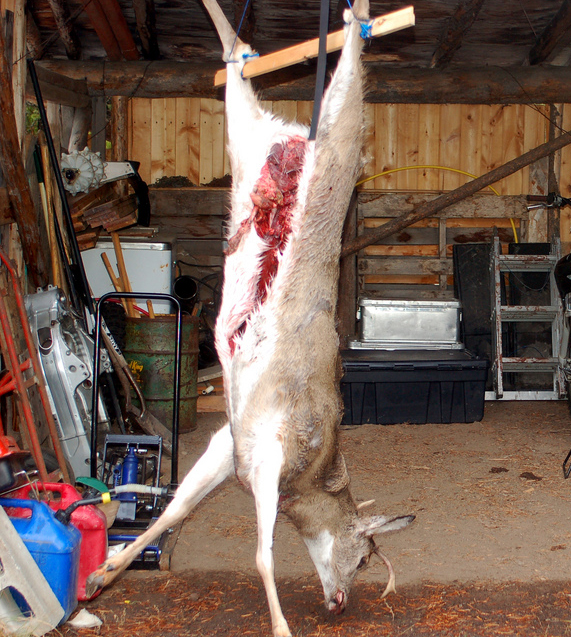Planting a food plot is a great way to encourage deer to graze on your property and thus increase your chances of a successful harvest. It also provides them with a highly beneficial source of nutrition to keep the local population big and healthy. The key to planting a successful food plot is finding a crop that both works well in your location and actually attracts deer. When it comes to successful food plots, many hunters, biologists and experts all agree that clover is one of the best. Still, there are several different species of clover, each with its own countless number of varieties. This can make it tough to decide which exactly is the best clover for deer.
The key to finding the best clover for a deer food plot is about deciding which type will grow best in your plot and also how often and when you want to plant it. So to make things a bit easier, this article will give you a full introduction into using clover for deer plots, including explaining the various types of clover, where each grows best and how to plant it.
Do Deer Eat Clover?
The first question you obviously want to ask yourself about anything you are considering planting in a food plot is whether or not the deer will eat. As you can expect, the answer is a resounding yes when it comes to clover. Still, deer also like to eat a lot of other things as well, but it's not only this fact that makes clover such an excellent crop, as it also provides a number of major benefits to the deer, soil and any grasses, grains or other crops you plant alongside it.
Benefits of Using Clover for Deer Food Plots
Clover offers one huge benefit for deer hunters, as it contains roughly 25-percent protein—helping to raise the typical whitetail's diet up near the daily protein intake it requires for optimal growth. As well, like all legumes, clover can actually take up beneficial nitrogen from the air thanks to a complicated relationship it shares with a type of bacteria.
The nitrogen helps fertilizer not only the clover, but it also deposits some of it back into the soil where it can be taken up by other crops you plant in the plot. Unfortunately, any nearby weeds will also benefit from this added nitrogen boost, so it's important that you fully prepare the field to make sure it is weed free before planting.
Best Type of Clover for Deer
The question of which is the best clover for deer plots can generally be answered by looking at the various types and deciding which is best for your area should you decide to plant a single variety. However, you also have the choice of planting a blend containing either various types of clover mixed together or one or more types of clover mixed with other food plot crops. Nonetheless, it's important to at least know a bit about each type to get the best results for your specific piece of land.
Although there are a few different species of clover, they can generally be divided into annuals and perennials, or those that grow for only one year compared to those that will regrow for two years or more. Due to climate, those living in the more southern parts of the country, including south Texas and the Deep South, will likely need to replant every year as most varieties are only annual in these areas.
Annual Clovers
The two most common types of annual clovers you'll find are crimson and arrowleaf, both of which could have their uses in a food plot.
Crimson is the earliest maturing type of clover, while arrowleaf is one of the latest. Although crimson clover is an early maturing plant and provides no food during the warm months, it can still be useful in attracting deer to the plot in the earlier months. Still, it works best when sewn with corn or another later maturing grain. Both varieties do have some reseeding potential, but they may take a bit of help to get good results.
Perennial Clovers
As with annuals, there are two main types of perennial clover—white and red. Of the two, red clover is a much weaker perennial, often only growing for 2 or 3 years compared to 5 to 10 for some varieties of white clover. Red clover begins growing earlier in the spring than any other species and offers the best grazing throughout the summer.
White clover may take a bit longer to get started, but it can be incredibly productive once it does get going. White clover can also handle lack of water better than others, although it doesn't grow very well in sandy soil. This is why it grows much better in the mid-western and eastern parts of the country than it does in the south, where it is usually only an annual. All white clover varieties are generally very leafy, but the plants can grow to different heights depending on the variety.
The term Dutch clover is often used to describe the shorter to medium height crops, while ladino is the term normally applied to the largest varieties. Some people prefer the shorter varieties, while others prefer a ladino clover food plot, but it really all depends on how much grazing is done on the plot as the shorter varieties can more easily be overgrazed. The best ladino clover varieties can sometimes produce as much as 5 times more foliage than the smaller white varieties, with types like Patriot and Durana being amongst the best growing.
Similarly, red clover can be quite susceptible to continuous grazing for any longer period of time or else it tends to die off.
Clover Planting Tips
When planting clover, one of the most important things is to either buy inoculated seeds or inoculate the seeds yourself, as this ensures the plants will contain the bacteria that allows them to take up nitrogen from the air. It's also important to remember not to plant the seeds too deep, as they should only be planted about 1/4 inch deep. In fact, many farmers simply wait until the forecast is for rain before planting, as the rain should sufficiently bury the seeds.
Test the Soil:
Another incredibly important task is to do a soil test at least six months before you plant, as you'll need to check the pH of the soil and also the nutrient content. There isn't one product or formula that could be considered the best fertilizer for clover food plots, as it all depends on what nutrients are already in your soil. Still, be aware that you shouldn't use any fertilizer containing nitrogen if only clover is planted, as the clover itself doesn't need the nitrogen. All it will do is benefit the weeds.
In terms of pH, you need to make sure your soil has a pH of somewhere between 6.0 and 8.0. In many cases, you may need to add lime to the soil to raise the pH. If so, make sure to do this around 6 months before you plant to make sure the soil is fully ready.
If your soil is very poorly drained, you may want to consider a different crop for your food plot, as most clovers will soon die if in standing water for too long. Still, most varieties do need at least a decent amount of water, with at least 30 to 40 inches of rainfall ideal for optimal growth. If you have less than this and can't irrigate your field somehow, you definitely want to look into one of the more drought resistant varieties of white clover.
Other Crops:
Another thing you'll want to consider is whether to plant other crops alongside the clover. Due to the added nitrogen in the soil, a number of companion and rotation crops grow well in the same plots with clover, including wheat, corn, chicory and many grasses and other plants. In fact, many of the seed mixes designed specifically to attract deer include other plants.
Of course, you could also buy the clover seeds separately and make your own specific mixes based on your own soil, location and climate. This is obviously the best idea if you have the time to put into doing all the research, but since most of us don't, here are some of the best products currently out there. On the other hand, if you do decide to mix your own, just make sure you buy quality seeds and preferably non-GMO.
Ranking the Best Clover for Deer:
Antler King Trophy Clover Mix

Antler King produces some of the most popular deer plot mixes, including this one, which contains a blend of four different varieties of red and white perennial clovers, as well as chicory and rapeseed. If you're looking for something that produces a ton of food with a huge protein content, this is it. In fact, Antler King claims it will grow 10+ tons of foliage per acre with a protein content of over 30 percent. This stuff not only attracts whitetails—it helps them to grow huge.
Pennington Rackmaster Clover Trio

If you want to only plant clover, you're best to use several different varieties that mature at different times to ensure food throughout the year. This is why the Pennington Rackmaster Clover Trio uses three different types of annual and perennial clovers with staggered maturing times to keep the deer coming from spring through fall.
The Dirty Gardener Deer and Elk Wild Game Mix

A smaller company, the Dirty Gardener offers up this interesting mix, which although it only contains around 15-percent clover seed (a mix of red and white), also contains other well growing deer favorites chicory (35%) and peas (50%). This mix is great for soils low on nutrients, as both the peas and clover will help increase the nitrogen content. As well, chicory grows extremely well alongside clover, which is why it is so commonly found in many of the deer plot mixes.
Pennington Rackmaster Durana Clover

If you're been considering just using white clover for deer, then you should definitely check out this Durana white clover. This is hands-down the best performing and most persistent variety of ladino clover on the market. Better still, it should last for about five years before you'll need to replant.
Antler King No Sweat No Till Plot Mix

This mix contains a variety of annuals and perennials, including rye, oats, brassica and clover. Although there's not really that much clover in this one, the reason it deserves mentioning is that it's specially designed for untilled plots, as it contains seeds chosen for their ability to grow in more acidic and shady areas. Just toss it out and let it grow.
Truth be told, any of these clover mixes could potentially be the best clover for deer in your plot. However, it is still important to consider the type of soil and your location, as again, these will be most important in determining what will grow best for you.






